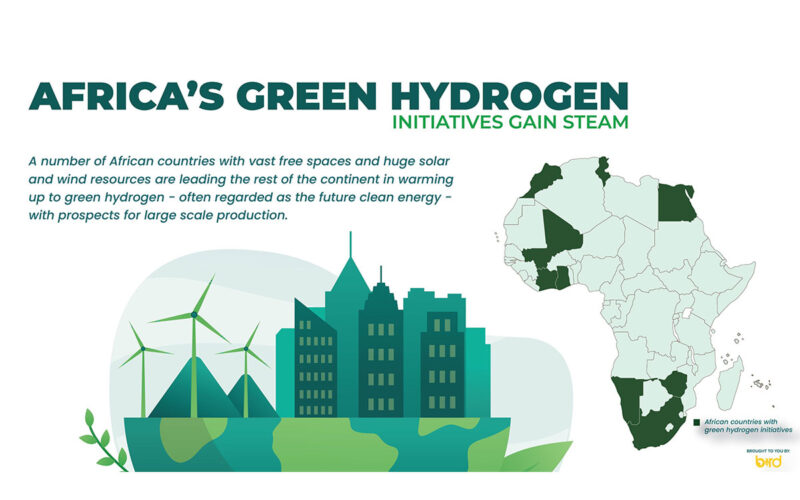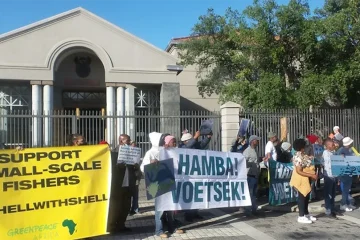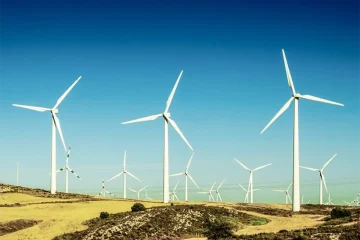CONRAD ONYANGO, BIRD STORY AGENCY
AFRICA is aiming to start large scale commercial production of green hydrogen to tap into the nascent industry that has the potential to price out diesel and petrol by 2030.
Despite the slow pace in the development of hydrogen infrastructure, hampered by high costs of production, the African market is fast gaining steam, headlined by a rise in local and international investments, partnerships and alliances.
South Africa is the latest country on the continent to tap into the carbon-free hydrogen market, with a planned new green hydrogen plant in its Northern Cape province that will produce sustainable aviation fuel.
The project, to be rolled out by South Africa’s integrated energy and chemical company, SASOL at its Secunda facility will be funded by the German government, which has already committed to sinking in 45 million US dollars.
The plant will leverage on low–carbon technologies and renewable energy and is seen playing a significant role in the low-carbon transition of local industries and global energy transition.
“It will reposition South Africa in energy provision both for export and use in South Africa, being a huge initiative in decarbonisation,” said South African Minister in the Presidency, Mondli Gungubele.
“South Africa has the potential to become a global sustainable aviation fuel hub due to our renewable endowment,” he said.
In early November, the Namibian government appointed the UK and German-backed project development firm, HYPHEN Hydrogen Energy, to develop the country’s first large-scale green-hydrogen plant, valued at 9.4 billion dollars with a production capacity of 300,000 tonnes annually.
The project, expected to begin its first phase of production in 2026, is by far the biggest in value terms on the continent.
Africa hydrogen Partnership (AHP), the continent’s only umbrella association dedicated to the development of green and natural (native) hydrogen, has affirmed the continent offers great potential for low-cost competitive pricing for the clean energy.
“Many African countries could leapfrog to the new age of hydrogen technologies,” said Dr Innocent Uwuijaren, Chairman of the AHP.
The association whose key priorities are to explore export markets, develop domestic markets and attract foreign investment from energy-intensive industries, said it is looking to double its membership numbers for a bigger influence on the shift to carbon-free hydrogen.
The 14 investment firms dubbed ‘Pioneer Members’ are drawn from organisations based across five African countries including Ivory Coast, Ghana, Mali, South Africa and Zimbabwe, all seen as among the potential early adopters of green hydrogen.
AHP International investor member organizations come from Canada, France, the Netherlands, Israel, Italy and the UK.
AHP ambassador, Toby Greenbury argues that to kickstart the broader development of green hydrogen and hydrogen-related business in Africa, countries should start with commercially viable green ammonia and fertilizer projects, a low-cost entry strategy.
“We believe that it will be possible to produce green ammonia in many countries in Africa at a cost which is significantly lower than the overall cost of buying ammonia from elsewhere in Africa or internationally,” said Greenbury.
Egypt and Morocco have their eyes trained on this model, too.
Egypt’s chemicals giant, Fertiglobe, plans to leverage on an electrolyser technology to produce green hydrogen as a feedstock for up to 90,000 tons of green ammonia production.
Morocco another, North African country is also looking to tender a 100MW green hydrogen electrolyser project this year, with plans to start production in 2025.
Tunisia is also considering green hydrogen as part of its future energy mix following a 2020 agreement with Germany under the Tunisian-German Green Hydrogen Alliance.
Research by the association of African Independent law firms, DLA Piper Africa shows that through the agreement, Tunisia is to receive a 31 million Euro donation to set up a pilot hydrogen production unit, studies, capacity building, and set up an institutional and regulatory framework, among others.
The global green hydrogen market is expected to be worth 1.4 billion dollars by 2026 from 755 million dollars in 2020, according to the research firm, Facts and Factors.













